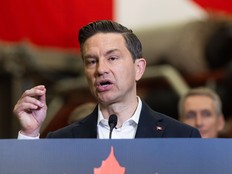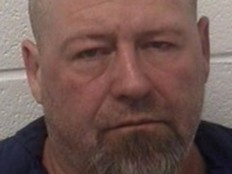Windsor mayor lauds Ford crackdown pledge on encampments, street drugs

Article content
Premier Doug Ford’s willingness to override Canadian charter rights to allow municipalities to remove encampments and tackle public drug use is a “very positive” move, according to Windsor’s mayor.
Drew Dilkens, one of a dozen Ontario mayors addressed in a letter from Ford on Thursday, told the Star the premier “shares the same concern that we’re sharing about crime and vagrancy and open drug use on our main streets.
Recommended Videos
“He was in tune in the letter with the need to have stronger legislation in place to deal with open drug use, giving police tools — great. Also, recognizing that more money is needed to support this.”
Ford’s letter was in response to correspondence signed by the mayors of 12 of Ontario’s largest cities on Oct. 31, who asked the province to take action on mental health, addiction, and homeless encampments. The letter requested that Ontario consider using the notwithstanding clause — allowing provinces to temporarily disregard a provision of Canada’s Charter of Rights and Freedoms — where necessary to deal with the trio of social issues.
More specifically, the mayors’ letter requested that the province intervene on “any court case that restricts the ability of municipalities to regulate and prohibit encampments.”
In response, Ford wrote that Ontario is “finalizing the details of new initiatives, including enhanced legislative powers.”
Although few details were provided, the letter said the legislative changes the province is preparing “are common sense, practical and entirely aligned with the Charter of Rights and Freedoms, especially for the law-abiding residents who simply want to enjoy the benefits of their local public spaces.”
As a result, Ford said he doesn’t anticipate a need to invoke the notwithstanding clause. But his government is prepared to do so, “should the courts interfere with our shared goal of effectively addressing and clearing out encampments using these enhanced tools.”
Windsor Ward 9 Coun. Kieran McKenzie is one of several dozen municipal and regional councillors from across Ontario to stand up against the potential use of the notwithstanding clause to deal with encampments. On Thursday, he told the Star use of the clause is a “shortcut” to address “extremely complex” housing issues.
“The idea of compromising people’s Charter rights as a way to address a very complex and serious issue is a measure that, perhaps, gives the appearance of doing something that could be impactful,” McKenzie said.
“But, at the end of the day, without actually addressing the infrastructure issues and the service issues, it amounts to, essentially … a leaf-blowing exercise that doesn’t help anyone.”
McKenzie said he will be putting forward a motion at Monday’s city council meeting asking his colleagues to endorse policy on encampments and the opioid crisis created by the Association of Municipalities of Ontario (AMO), policy he said is based on data and “robust” consultation.
He also wants city council to call on the province to implement AMO’s recommendations, which include “expanding access to voluntary treatment,” as well as making “significant investments in deeply affordable housing.”
McKenzie said what he’s bringing forward “was passed by a board that represents 400 municipalities across Ontario. This isn’t me creating something. This is (AMO), who actually, when they do policy development, follows best practices.”
Ford’s Thursday letter stated the province will “explicitly and unequivocally” prohibit the use of illicit drugs in public, “with new tools and authorities to help police enforce this prohibition.” It would also implement enhanced penalties for those who “deliberately and continually break the law.”
The letter also indicated the province would provide additional funding to increase shelter capacity, and implement “new approaches to treatment and rehabilitation,” ones that “prioritize pathways to recovery over incarceration” for minor and non-violent drug crimes.














Postmedia is committed to maintaining a lively but civil forum for discussion. Please keep comments relevant and respectful. Comments may take up to an hour to appear on the site. You will receive an email if there is a reply to your comment, an update to a thread you follow or if a user you follow comments. Visit our Community Guidelines for more information.